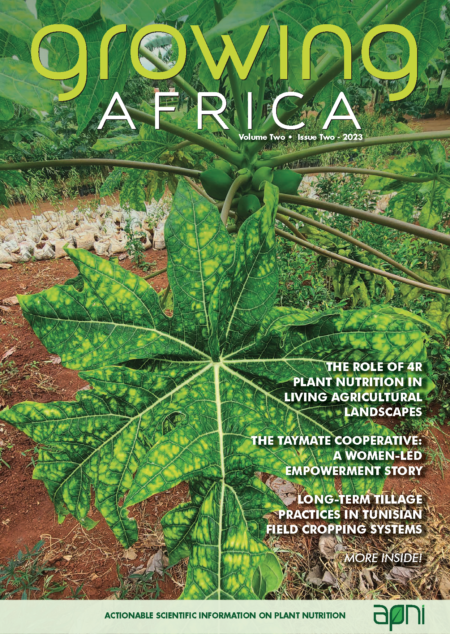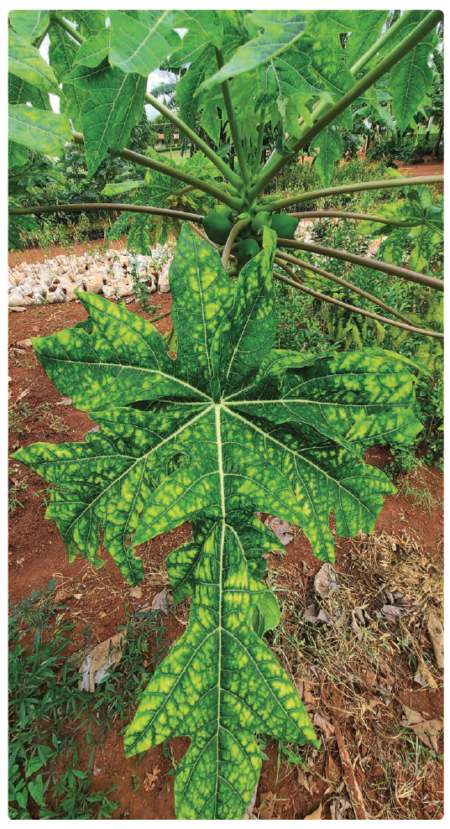By Kaushik Majumdar
Fertilizer and soil health are crucial enablers that work in tandem to help produce the food and other agricultural commodities we consume. Balanced and adequate application of fertilizer provides the plant nutrients required to produce sufficient crop biomass— the building block of soil organic matter and the most important indicator of soil health. In turn, a soil rich in organic matter provides the right physical, chemical, and biological conditions for efficient and effective utilization of applied fertilizer leading to rich crop harvests of adequate quality, and better economic returns from fertilizer investments.
Low fertilizer application has long been a key constraint restricting food and commodity production in Africa. Inadequate nutrient addition on-farm has failed to fulfil the food and nutritional needs of Africa’s expanding population and has not generated enough above- and below-ground biomass to build soil organic carbon. Many years of such practice has stripped African soils of their native fertility and organic matter, seriously undermining soil health. This has led to many other negative outcomes, namely widespread hunger and malnutrition, fewer livelihood opportunities, and loss of biodiversity and other non-provisional ecosystem services that we must remedy.
The soon to be organized Fertilizer and Soil Health Summit under the aegis of the African Union Commission has created a lot of interest and enthusiasm within the Continent. We are eagerly looking forward to the 10-year action plan planked on fertilizer and soil health to fundamentally transform African agriculture.
The endorsement of the 10-year action plan by the African Union Commission countries, however, only marks the point where concerted efforts must begin. The African Union Commission has 55 member states at different development trajectories with diverse aspirations and goals. For the 10-year action plan to successfully produce the desired results, the national goals of the member states must align with this continental vision. The many national and regional public organizations dealing with research for development, policy and financing; NGOs; civil societies; international research and development agencies; and input industries, etc. must synergize their actions by leveraging the key strengths of each other. It will also require a robust and long-term financing mechanism to backstop its implementation. This is a complex task, but it should be achievable when a new continental vision of development is guiding us.
The African Plant Nutrition Institute (APNI) has remained steadfast in our effort to support the African Union Commission in preparation for the Summit. We remain committed to an inclusive effort for implementing the 10-year action plan in alliance with our partners and collaborators spread across the continent. This issue of Growing Africa is dedicated towards a successful Summit.
Dr. Majumdar (e-mail: k.majumdar@apni.net) is the Director General of the African Plant Nutrition Institute (APNI), Benguérir, Morocco.





